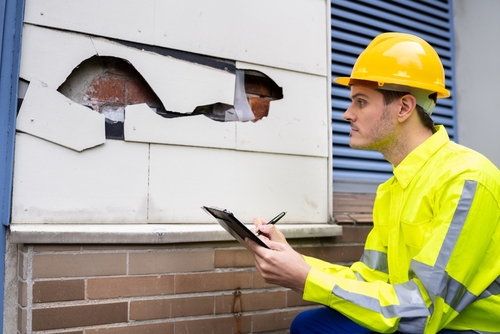When Property Insurance Meets Personal Injury: Critical Coverage Questions for Texas Homeowners
A delivery driver slips on your wet driveway and breaks their ankle. Your neighbor’s child gets bitten by your dog during a backyard barbecue. A friend trips over loose carpeting at your rental property and suffers a concussion. These scenarios happen more often than homeowners realize, leaving many wondering if their property insurance will actually protect them when someone gets hurt on their property. The truth is that most home policies in Texas include personal liability coverage that pays medical bills, lost wages, and other costs for people you’re legally responsible for injuring—but the coverage limits and exclusions might surprise you. Understanding exactly what your policy covers before an accident occurs can mean the difference between financial protection and devastating personal liability.
💡 Pro Tip: Review your homeowner’s policy annually and pay special attention to the personal liability coverage limits—most standard policies provide $100,000 to $300,000 in coverage, which may not be enough for serious injuries.
Safeguarding your financial future starts with understanding your insurance coverage. Don’t leave it to chance—speak with the experienced team at JCE Law Group today. Whether you’re facing a claim or simply need guidance, reach out to us at 504-754-5884 or contact us.
Understanding Your Legal Rights and Responsibilities as a Texas Property Owner
Texas law creates specific frameworks for property owner liability that every homeowner should understand. Under Chapter 75 of the Texas Civil Practice and Remedies Code, landowners have limited liability for injuries to trespassers and recreational users, but this protection doesn’t relieve any owner, lessee, or occupant of real property of any liability that would otherwise exist for deliberate, wilful, or malicious injury to a person or to property. When legitimate visitors suffer injuries on your property, your personal liability coverage becomes your first line of defense. A Texas property insurance lawyer can help you understand how these legal protections interact with your insurance coverage, especially when dealing with complex situations like contractor injuries or attractive nuisance claims involving children.
💡 Pro Tip: Document any hazardous conditions on your property with photos and dated notes showing when you discovered them and what steps you took to address them—this evidence can protect you legally and help with insurance claims.
What Happens After Someone Gets Injured on Your Property: A Step-by-Step Timeline
When an injury occurs on your property, understanding the timeline of events helps you protect your interests and ensure proper insurance coverage. Most policies won’t pay for damages or injuries that occur during short-term rentals, so if you rent out your house for short-term lodging, you might need to buy more coverage. Here’s what typically unfolds after an injury incident:
- Immediate Response (0-24 hours): Call 911 for serious injuries, document the scene with photos, gather witness information, and avoid admitting fault while showing appropriate concern for the injured person
- Insurance Notification (24-48 hours): Contact your insurance company immediately—delays can jeopardize coverage, especially if the injured party files a claim first
- Investigation Phase (1-4 weeks): Your insurer assigns an adjuster who will investigate the incident, review your policy, and determine coverage eligibility
- Medical Documentation (Ongoing): The injured party seeks treatment, and medical payments coverage pays the medical bills of people hurt on your property up to policy limits, typically $1,000 to $5,000
- Settlement Negotiations (2-6 months): If liability is established, your insurer negotiates with the injured party—personal liability coverage also pays your court costs if you’re sued because of an accident
💡 Pro Tip: Never agree to pay medical bills directly or sign any documents without consulting your insurance company first—even well-meaning gestures can complicate your coverage.
How a Texas Property Insurance Lawyer Helps Maximize Your Coverage Protection
When facing a personal injury claim on your property, having proper legal guidance makes all the difference in protecting your assets and ensuring your insurance company honors its obligations. JCE Law Group understands the nuances of Texas property insurance law and can help you navigate coverage disputes, especially when insurers attempt to deny claims based on policy exclusions or technicalities. A skilled Texas property insurance lawyer reviews your policy language, identifies all available coverage sources, and ensures you’re not personally liable for damages that should be covered by insurance. This becomes particularly crucial when dealing with serious injuries that exceed your policy limits or involve complex liability questions under Texas Landowner Liability Law.
💡 Pro Tip: If an insurance adjuster contacts you directly about a claim, politely defer detailed discussions until you’ve consulted with an attorney—initial statements can significantly impact coverage determinations.
Medical Payments vs. Personal Liability Coverage: Understanding the Critical Differences
Many Houston homeowners confuse medical payments coverage with personal liability protection, but understanding the distinction is crucial for adequate protection. Medical payments coverage pays for some injuries that happen away from your home, such as if your dog bites someone at the park, and typically provides immediate payment regardless of fault. This coverage usually ranges from $1,000 to $5,000 and helps with minor injuries without requiring liability determinations. Personal liability coverage, however, pays medical bills, lost wages, and other costs for people that you’re legally responsible for injuring, and also pays if you’re responsible for damaging someone else’s property. Working with a Texas property insurance lawyer ensures you understand both coverages and have adequate limits for your specific situation.
When Standard Coverage Falls Short
Home policies provide liability protection, but the amount of coverage is limited, and if you want more coverage than your policy provides, you can buy a separate umbrella liability policy. These policies typically provide $1 million or more in additional coverage and kick in when your homeowner’s policy limits are exhausted. For Houston homeowners with significant assets, swimming pools, trampolines, or frequent guests, umbrella coverage provides essential extra protection. The relatively low cost—often $200-$300 annually per million in coverage—makes this one of the best values in asset protection.
💡 Pro Tip: Calculate your net worth including home equity, investments, and future earnings to determine appropriate umbrella coverage—you want enough to protect all your assets from a catastrophic judgment.
Special Liability Concerns for Houston Property Owners
Texas property owners face unique liability challenges that require careful consideration and proper insurance coverage. An owner, lessee, or occupant of real property in Texas is liable for trespass as a result of migration or transport of any air contaminant only upon a showing of actual and substantial damages by a plaintiff in a civil action—meaning environmental claims require proof of real harm. Additionally, Chapter 95 applies only to claims against a property owner, contractor, or subcontractor for personal injury, death, or property damage that arises from the condition or use of an improvement to real property where the contractor or subcontractor constructs, repairs, renovates, or modifies the improvement. Understanding these specific liability frameworks helps property owners work with their Texas property insurance lawyer to ensure appropriate coverage.
Contractor and Workplace Injury Considerations
The Texas Supreme Court in 2021 clarified that for Chapter 95 to apply, the danger must arise from the condition or use of "an improvement" within the workplace, not just from an unsafe workplace generally. This distinction matters greatly for property owners hiring contractors for home improvements or repairs. Under Chapter 95, property owners are liable for injuries to contractors’ or subcontractors’ employees only if they exercise or retain some control over the manner in which work is performed and have actual knowledge of the danger or condition that injures the employee. Consulting with legal counsel before major projects helps establish proper boundaries and insurance requirements.
💡 Pro Tip: Always verify that contractors carry their own liability and workers’ compensation insurance before allowing work on your property—get certificates of insurance naming you as an additional insured.
Navigating Policy Exclusions and Coverage Gaps
Understanding what your property insurance doesn’t cover is just as important as knowing what it does cover. Most policies won’t pay for damages or injuries that occur during short-term rentals, creating significant exposure for homeowners participating in vacation rental platforms. Similarly, certain dog breeds, trampolines, and swimming pools may require additional coverage or result in policy exclusions. The law does not affect the doctrine of attractive nuisance except in specific circumstances, and the doctrine of attractive nuisance may not be the basis for liability of an owner, lessee, or occupant of agricultural land for any injury to a trespasser over the age of 16 years. These nuances in Texas home insurance guide decisions about property use and necessary coverage enhancements.
Business Activities and Home-Based Operations
Running a business from your Houston home, even something as simple as tutoring or selling crafts online, can void your personal liability coverage for business-related injuries. "Property owner" means a person or entity that owns real property primarily used for commercial or business purposes under Chapter 95, which creates different liability standards. Home-based business owners need specific endorsements or separate business liability policies to maintain protection. This becomes particularly important in Houston’s growing gig economy where many residents operate side businesses from their homes.
💡 Pro Tip: Disclose all business activities to your insurance agent—even occasional or part-time ventures—to ensure you have appropriate coverage and avoid claim denials.
Frequently Asked Questions
Coverage Limits and Legal Concerns
Property owners often have questions about their liability exposure and insurance coverage adequacy, especially after learning about Texas’s specific legal frameworks for property owner liability.
💡 Pro Tip: Keep a written log of all property maintenance and repairs with dates and receipts—this documentation proves you’ve been a responsible property owner if liability questions arise.
Next Steps After an Incident
Knowing how to respond after someone gets injured on your property can significantly impact both insurance coverage and legal liability, making proper guidance essential.
💡 Pro Tip: Create an incident response checklist and keep it with your insurance documents so you’re prepared to handle injury situations properly from the first moment.
1. Will my Houston homeowner’s insurance cover injuries during a party or social gathering?
Yes, standard homeowner’s policies typically cover injuries to guests during social gatherings, but coverage may be limited or excluded if you charge admission, the gathering is for business purposes, or alcohol service results in liability. Review your policy’s specific exclusions and consider umbrella coverage for large events.
2. What happens if someone gets injured by my dog at a park in Houston rather than on my property?
Medical payments coverage pays for some injuries that happen away from your home, including dog bites at parks. Your personal liability coverage also extends beyond your property boundaries for incidents you’re legally responsible for, though some policies exclude certain dog breeds or have sublimits for animal-related injuries.
3. How much personal liability coverage do I need as a Houston property owner?
While most standard policies provide $100,000 to $300,000 in personal liability coverage, Houston property owners should consider their total assets, income, and specific property risks. High-net-worth individuals, those with pools or trampolines, or frequent entertainers often need $500,000 or more in base coverage plus an umbrella policy.
4. Are contractors injured while working on my property covered by my homeowner’s insurance?
Coverage for contractor injuries is complex and depends on whether you maintained control over the work and had knowledge of dangerous conditions. Under Texas law, property owners are generally protected if contractors maintain control over their work methods, but you should always verify contractors have their own insurance before work begins.
5. What should I do immediately after someone gets injured on my Houston property?
First, ensure the injured person receives necessary medical attention by calling 911 if needed. Document the scene with photos, gather witness information, and report the incident to your insurance company within 24-48 hours. Avoid admitting fault or discussing coverage limits, but do show appropriate concern for the injured party’s wellbeing.
Work with a Trusted Property Insurance Lawyer
When someone suffers an injury on your property, the stakes are high—both financially and legally. Understanding your insurance coverage, policy exclusions, and legal obligations under Texas law requires more than a casual reading of your policy documents. Property insurance companies often interpret policies narrowly to limit their exposure, leaving property owners vulnerable to personal liability. Whether you’re facing a current claim, concerned about coverage adequacy, or need guidance on Texas Landowner Liability Law, professional legal counsel protects your interests and ensures you receive the coverage you’ve paid for. A dedicated attorney can review your specific situation, identify coverage gaps, and develop strategies to maximize your protection under existing policies while minimizing personal exposure.
Don’t wait for the unexpected to catch you off guard—ensure your property is a fortress of protection. Let JCE Law Group walk you through the nuances of your Texas home insurance today. Reach out at 504-754-5884 or contact us to safeguard your peace of mind.






